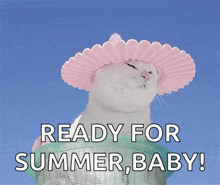"Why would you hyphenate your last name?" a white family member of mine said. "This is America, not Mexico."
Being biracial results in me being pulled two ways.
I always joke with my white step-dad and siblings that my mom is more southern than the rest of us, who are from the American south. She is from Piedras Negras, Coahuila, a Mexican border town five minutes away from Texas. Her dad, my güelito, and I would make tortillas de harina (flour tortillas) from scratch with a rolling pin and flour he bought from the Mexi mart.
Their hometown has open-air markets that students, including me, hear about in Spanish class. It has candy stores whose shelves are filled with Pulparindo and Duvalín. It has homes where my other family members live, the ones who follow their culture by giving a kiss on the cheek as a greeting.
My family greets each other with kisses at a party in my mom's hometown in Feb. 2020.
My dad was born in Florida's summer heat before he moved up north to Ohio. He is tall and pale, very much the opposite of my five-foot-tall tan mother. He likes American and British rock bands, whereas my mom enjoys Norteño music.
He speaks English and English only, though he has a nightly tradition of saying "buenas noches" (good night) and "hasta mañana" (until tomorrow) to me and my sister. We call him Papi instead of Dad.
I'm a mix of them both, but I also have some southern in me from Georgia, where they met, and I live. I say "y'all" in between bites of a quesadilla and French fries.
Hispanics think I'm Hispanic, white people think I'm white, and sometimes it's vice versa. They're both right. Growing up biracial has made some aspects of my life more unique and some more difficult.
The first time I've had a discriminatory comment thrown my way was in sixth grade. A Latina told me I was a "fake Mexican." 11-year-old me was taken aback as I tried to hide my tears. Some might roll their eyes and say I'm over dramatic for letting comments like these hurt me or even for calling them what they are: racist.
According to a study done at the Pew Research Center in 2015, 55% of multiracial adults have been the victims of racially-propelled slurs or wisecracks.
I'm 16 now and have heard a few more negative things about my biracial identity directed my way. One kid told me I didn't count as a person of color because I look white. Would he have said the same if I had more melanin like other Mexican-Americans or light skin biracial people?
Full-blooded Hispanics are considered people of color, no matter how light their skin is. Why not me? I'm not a person whose genetic makeup is 100% European -- so am I a half-POC? That doesn't exist.
I simply feel lost sometimes, though hyphenating my last name is one thing that helps to anchor me a bit. It honors both my dad's European and my mom's Hispanic last names while adhering to the Latin American way of writing one's surname. I've been met with resistance by my white family with this, though. So, while I may write "Isabella Dudley-Flores" on all of my geometry worksheets and use this name for my social media handles, it will not legally belong to me until I take the steps to change it at 18.
I'm happy to at least be proud of my identity now. When I was even younger, I was ashamed of my identity.
At my mom's house, we had a Guatemalan live-in nanny who really only spoke Spanish. She lived with us from my first days to when I was 10 years old. I was technically raised bilingual until that age.
I was ashamed to speak Spanish, though. I only spoke it when it was necessary to communicate with my nanny, whom nowadays I text "Te quiero mucho" (I love you so much) and "¿Como estás?" (how are you), or my grandparents, whom I didn't talk to much, either. My family told me I'd regret this resistance to the language later. I didn't listen.
I could be fluent right now, but instead I pay the price caused by past embarrassment.
My schoolmates from my school Spanish classes throughout the years have told me they think I'm fluent. They say this since I remember vocabulary from those ten years, although my speaking is rough. I always tell them, "I wish."
One of my tías (aunts) has a young biracial son, and I've talked to her before about how I thought it would be a good idea for her to speak with him in Spanish. At least it would give him a chance with the language. Maybe he'd refuse it, like me, or maybe he'd embrace it and save the regret later.
My fully-Mexican cousin (right) and I (left) at the same Feb. 2020 party.
I sometimes find myself jealous of my prima (cousin) who has two Mexican parents. She is what I wanted to be. One race. Maybe if my dad was also Hispanic, I wouldn't be so ashamed of my Mexican-ness because there wouldn't be a more "acceptable" race I could solely label myself to escape my Latina genes.
I have to remind myself that everybody's familial circumstances are unique. Having parents from different countries is a part of who I am.


















